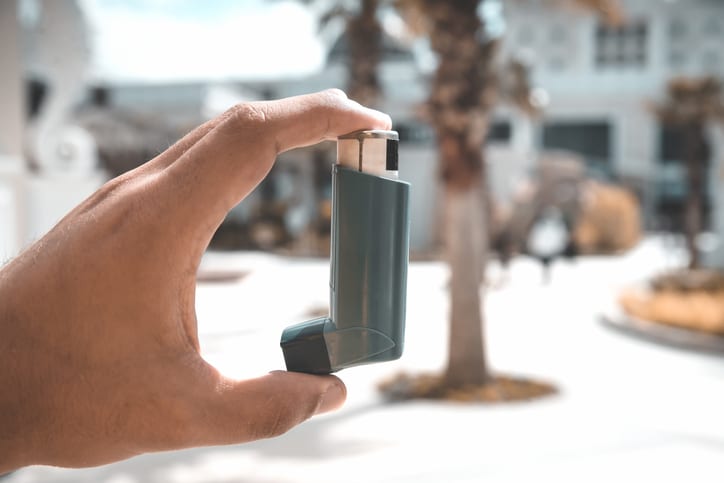Bronchodilators, or most commonly called inhalers, are medications that are breathed through the mouth and into the lungs to help relax muscles that tighten around your airways. The medicine helps open the airway and lets more air move in and out of your lungs and helps you breathe more easily.
People with asthma use inhalers during an attack when their airways swell and become narrower. These attacks cause the person to cough, wheeze and have trouble breathing. Almost everyone with asthma will use a bronchodilator to help open their airways. Others may use one at some point in their life if diagnosed with a persistent cough, COPD, bronchitis, etc. Different asthma inhalers have different medications, or a combination of drugs, to address different illnesses.
Different Kinds of Inhalers
There are three basic types of inhalers that deliver medications. The most common is the metered-dose inhaler (or MDI) which uses pressure to push the medication out of the inhaler. Nebulizers use air or oxygen and deliver a mist of the medication through a tube or mask that fits over your nose and mouth. Dry powder inhalers (or DPIs) deliver medication, but they require a strong and fast inhalation.
Short-acting bronchodilators are used as “quick-relief”, “reliever”, or “rescue” inhalers. These bronchodilators open the airways and help stop or relieve acute asthma attacks very quickly. While they’re best known for working on sudden attacks, they’re also great to use before exercise to help stop asthma during your workout.
While many people use short-acting bronchodilators, the overuse of an inhaler, tablet, or liquid/nebulizer, is a sign of uncontrolled asthma that needs better treatment. If you are using short-acting bronchodilators more than twice a week, call Charleston Allergy & Asthma about improving your asthma control therapy.
Long-acting bronchodilators provide control, not quick relief, of asthma. Your board-certified allergist will prescribe the medication, which is usually taken twice a day along with inhaled steroids for long-term monitoring of symptoms.
Unlike short-acting inhalers, long-acting inhalers do not work on muscle inflammation directly. Instead, they help the airways relax, allowing more air to pass through.
If you’re struggling with your asthma or think you may be in need of a prescribed inhaler, request an appointment online today.
Sources:
https://www.aaaai.org/conditions-and-treatments/conditions-dictionary/asthma-inhalers
https://www.aaaai.org/conditions-and-treatments/conditions-dictionary/bronchodialator




